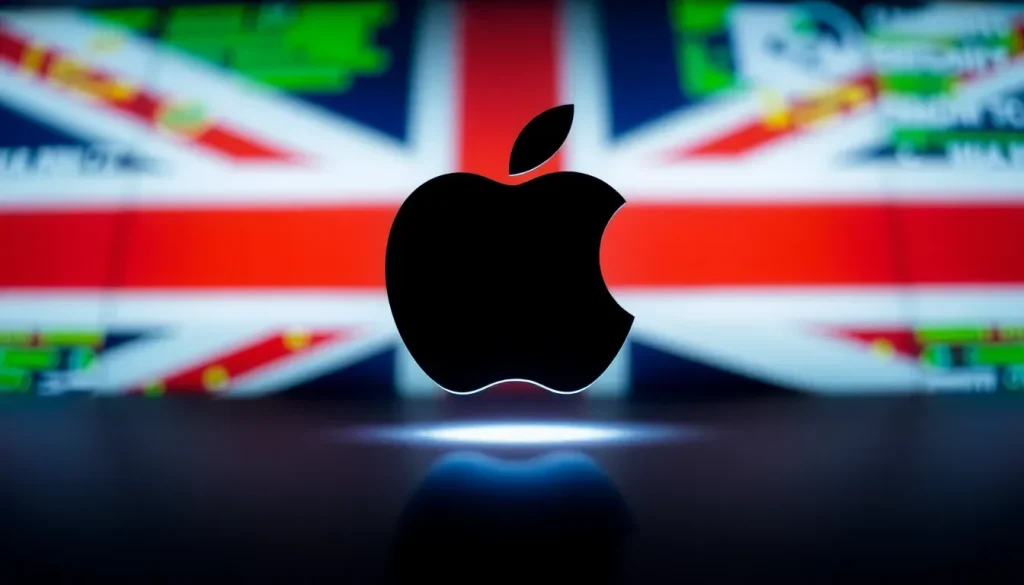UK government seeks backdoor access to Apple user data again

The ongoing tension between privacy and government surveillance has once again come to the forefront with the UK government's renewed attempts to access Apple's user data. As tech giants like Apple strive to maintain user privacy through robust encryption, various governments are increasingly pressing for access to encrypted information. This tug-of-war highlights the complexities of digital privacy in an age where data security is paramount.
In recent developments, the UK government is pushing for a way to routinely access iCloud backups of its citizens. This push comes on the heels of a previous attempt to mandate backdoor access to encrypted data that faced significant pushback both domestically and internationally. As this saga unfolds, the implications for user privacy, corporate responsibility, and international relations are significant.
UK's renewed efforts to access encrypted data
In September 2025, the UK Home Office issued a new order demanding that Apple create a method for officials to access the encrypted cloud backups of British citizens. This development is particularly noteworthy given that just a month prior, the UK government appeared to back down from its previous demands for backdoor access to Apple's encryption protocols.
This latest request is framed as being more targeted, focusing specifically on data from British citizens rather than a broad spectrum of data that could include international users. However, the crux of the issue remains: if Apple complies, it could undermine the integrity of its encryption system globally.
- The new order follows ongoing debates about user privacy rights.
- Previous backdoor requests led to diplomatic tensions between the UK and the US.
- Apple's encryption policies aim to protect user data on a global scale.
A persistent privacy worry
The demands for encryption access have persisted in the wake of the 2024 revamp of the UK's Investigatory Powers Act. This legislation granted the government the authority to compel tech companies like Apple to assist in breaking end-to-end encryption, a move that raised alarms among privacy advocates and tech experts alike.
In 2025, the U.S. government expressed serious concerns about the UK's backdoor demands, emphasizing that it could lead to global security vulnerabilities. The U.S. intelligence community even hinted at restricting data sharing with the UK if these demands continued, indicating the seriousness of the issue.
Apple has maintained a firm stance against weakening its encryption. The company argues that compromising encryption in one region can have **far-reaching implications** worldwide, impacting the security of all users. In direct response to the UK's push, Apple disabled its Advanced Data Protection feature in the UK, avoiding compliance with the backdoor mandate and signaling its commitment to user privacy.
Diplomatic tensions over encryption policies
The diplomatic fallout from the UK's encryption demands has been palpable. In August 2025, U.S. spy chief Tulsi Gabbard indicated that the U.S. had put pressure on the UK to retract its backdoor request, suggesting that the UK had not been entirely forthright in its negotiations. This revelation points to the intricate balancing act both countries must perform between security needs and privacy rights.
The U.S. has historically been an ally of the UK, but the encryption debate has sparked bipartisan concerns among U.S. lawmakers about the implications of compromising user privacy in favor of surveillance. The frustrations have led to discussions about potential consequences for intelligence sharing between the two nations.
Implications for user privacy and corporate responsibility
The push for backdoor access raises critical questions about the responsibilities of tech companies in safeguarding user data. As more governments demand access to encrypted information for security reasons, the balance between user privacy and public safety becomes increasingly precarious. Some key implications include:
- User trust: Failure to protect user data can lead to a loss of trust in tech companies.
- Corporate ethics: Companies must weigh their ethical responsibilities against governmental demands.
- Global standards: The outcomes of these negotiations may set precedents for privacy laws worldwide.
One of the most pressing concerns surrounding Apple's data practices is whether the company cooperates with law enforcement to provide user information. While Apple has a history of resisting requests for backdoor access, it does comply with legal requests under certain circumstances.
Apple has consistently stated that it only shares user data when legally compelled to do so. However, the company has also emphasized its commitment to user privacy, often fighting against requests that it perceives as infringing on civil liberties. This balancing act complicates the narrative surrounding governmental access to data.
Looking ahead: The future of data privacy and encryption
The ongoing negotiations and public discourse surrounding encryption and data privacy will likely shape the future of technology regulations. As governments around the world grapple with the challenges of cybersecurity and user privacy, the outcomes of these discussions could influence policies for years to come.
Moreover, as public awareness of privacy issues grows, companies like Apple will need to navigate increasingly complex legal and ethical landscapes. The outcome of these tensions will be crucial not only for users in the UK but for individuals around the globe who rely on encrypted services to protect their data.
For further insights on this topic, you may find this video informative:
As the situation continues to evolve, both citizens and tech companies must remain vigilant and informed about the implications of government requests for data access. The intersection of privacy, security, and corporate responsibility will undoubtedly continue to be a contentious area in the years to come.




Leave a Reply